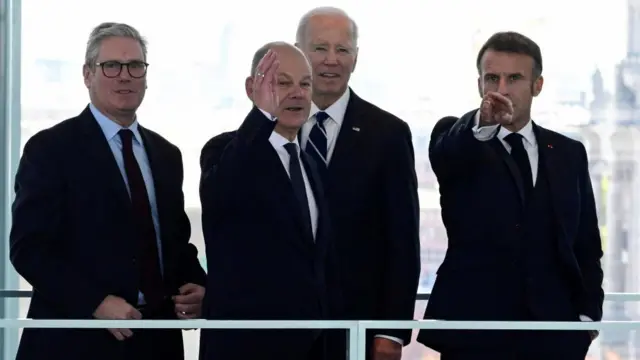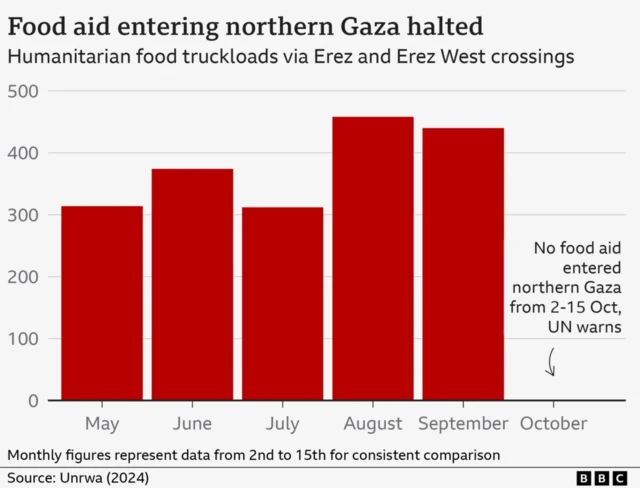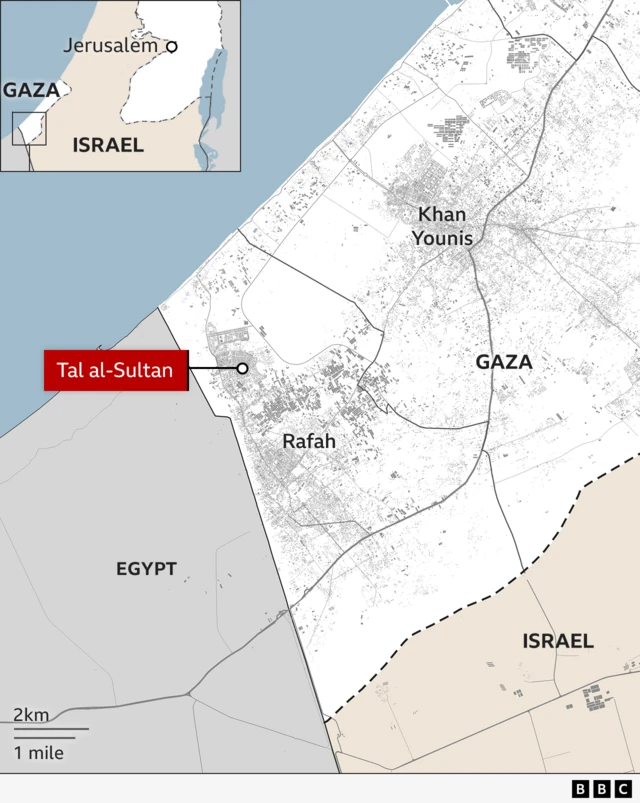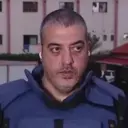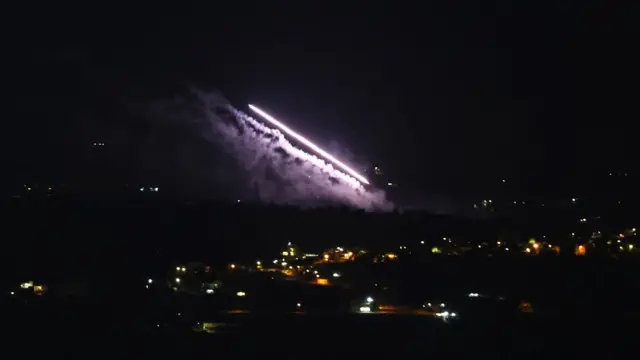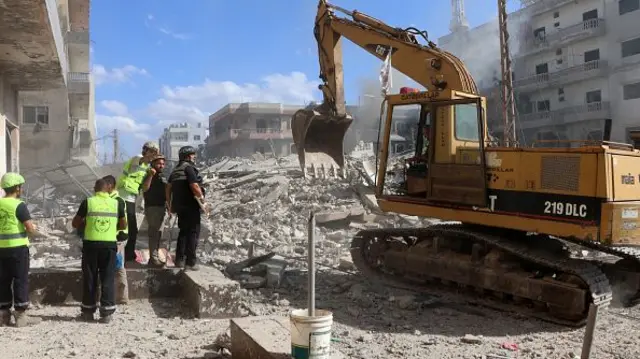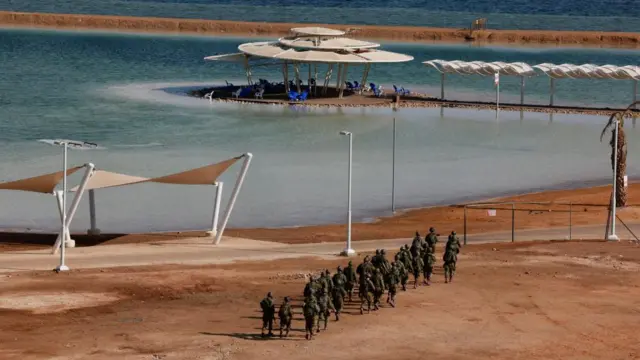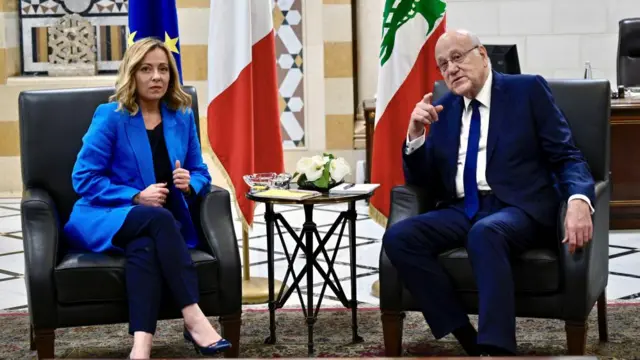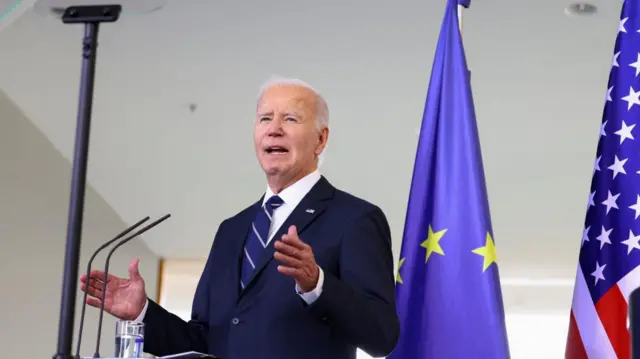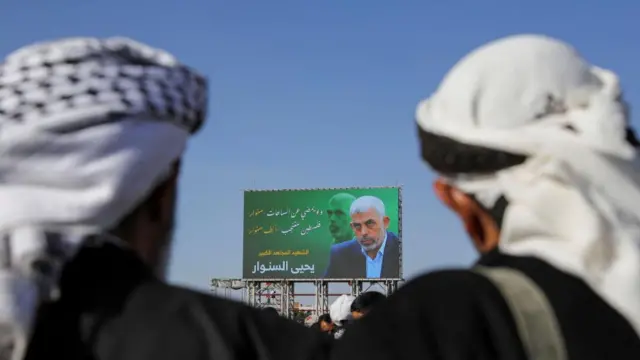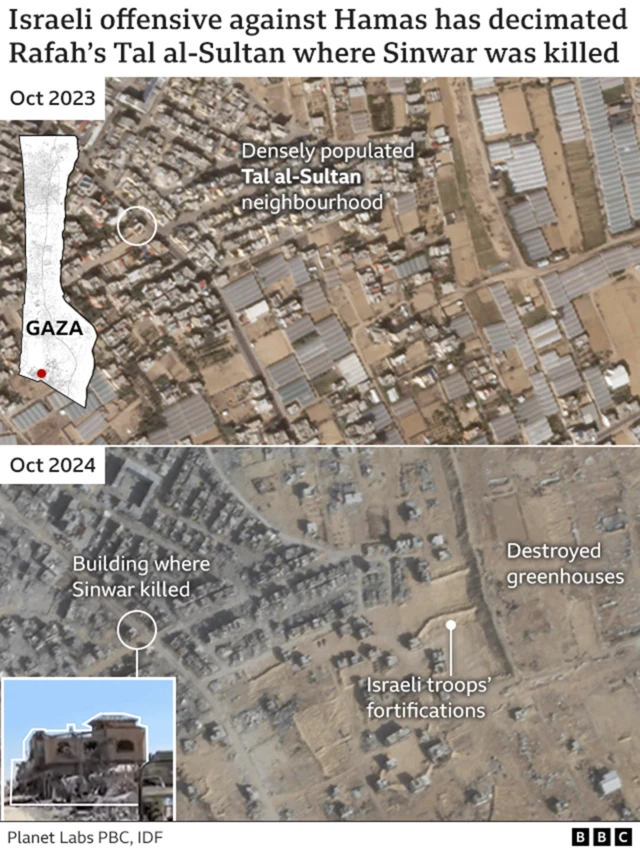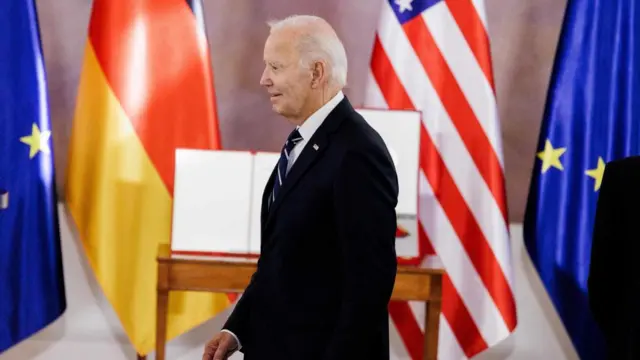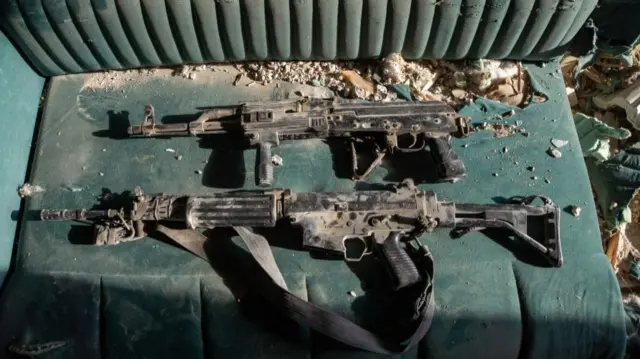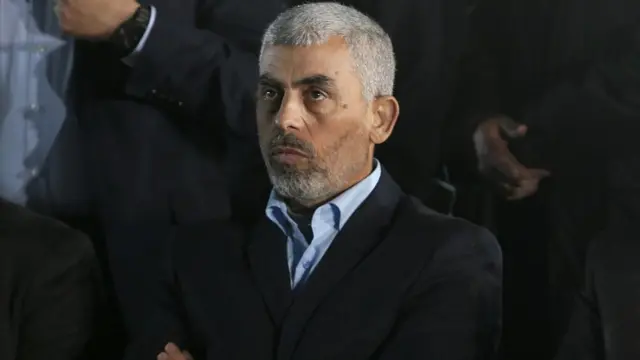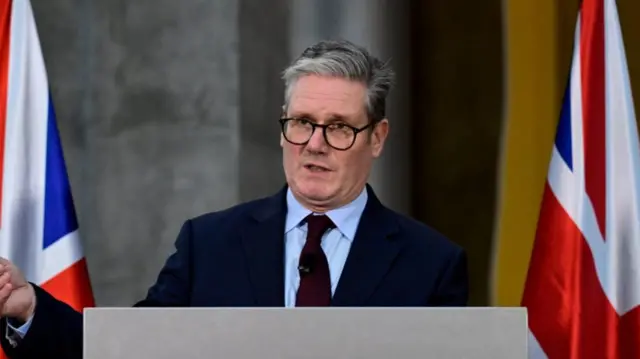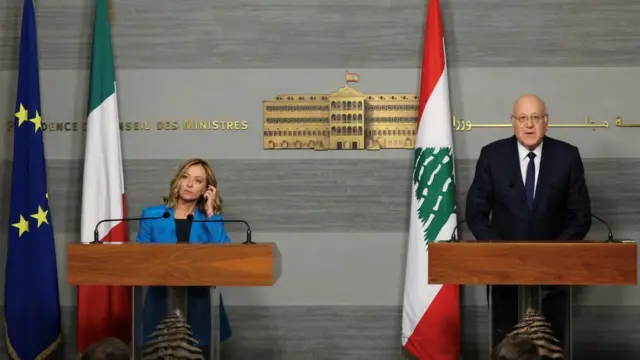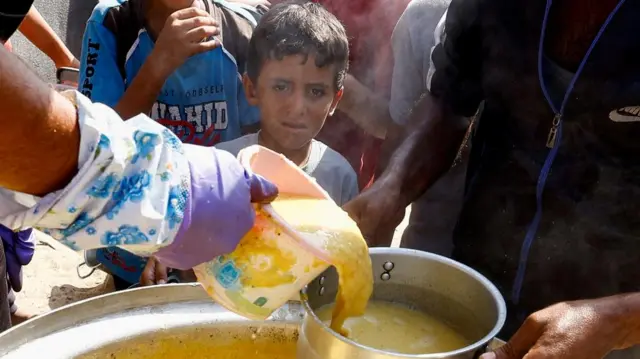West hopes for ceasefire after Sinwar's death but no end in sight for warpublished at 22:39 BST 18 October 2024
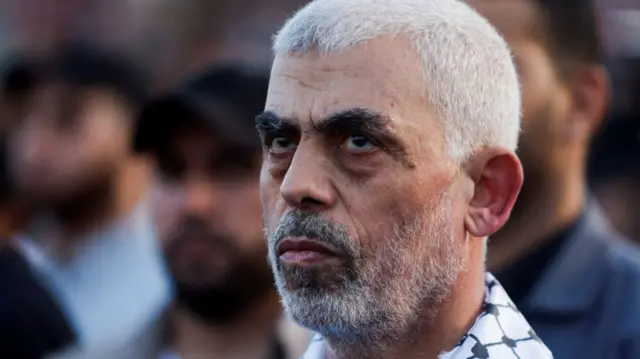 Image source, Reuters
Image source, ReutersIsraelis, Palestinians in Gaza and global leaders are still attempting to work out what Israel's killing of Hamas's leader Yahya Sinwar means for the crisis in the Middle east.
The UK, the US and Germany cast his death as the removal of a key obstacle in achieving a ceasefire in Gaza.
Joe Biden soon admitted that the end of the war is not yet in sight - a view echoed by many Palestinians. But the US president did say it may be possible to bring about an end to the war in Lebanon
Hamas, Hezbollah and Iran put up a united front as they reacted to Sinwar’s killing, describing him as a "martyr". And they warned the fighting won’t stop “until Palestine is liberated".
But in Lebanon, cracks emerged as Tehran - Hezbollah’s top financial and military backer - was accused of “blatant interference” after offering to negotiate with France over UN Resolution 1701, which ended the last conflict between the paramilitary group and Israel in 2006.
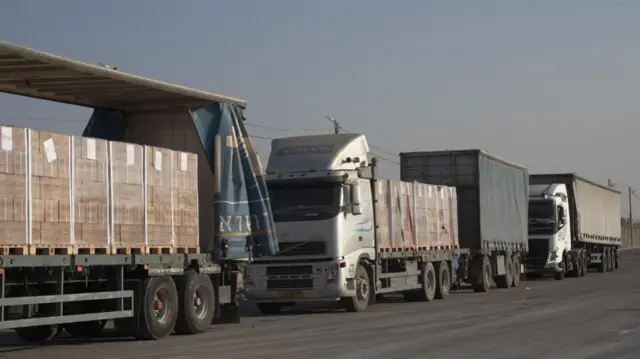 Image source, Cogat
Image source, CogatIsrael had faced pressure from allies to facilitate the deliveries of medicines and food into northern Gaza
Elsewhere, Israeli military body Cogat - which manages the crossing of humanitarian aid into Gaza - said dozens of lorries carrying “food, water, medical supplies and shelter equipment" entered the north of the Strip today.
Shortly after, Israeli minister Amichai Chikli told the BBC Israel imposed a blockade on northern Gaza and prevented supplies from arriving in the area, which includes the refugee camp of Jabalia. Israeli forces have been fighting a deadly ground operation there for nearly two weeks.
We will now be pausing our coverage of the conflicts in Gaza and Lebanon but, in the meantime, you can watch BBC Verify’s analysis of the footage of Sinwar’s killing.
